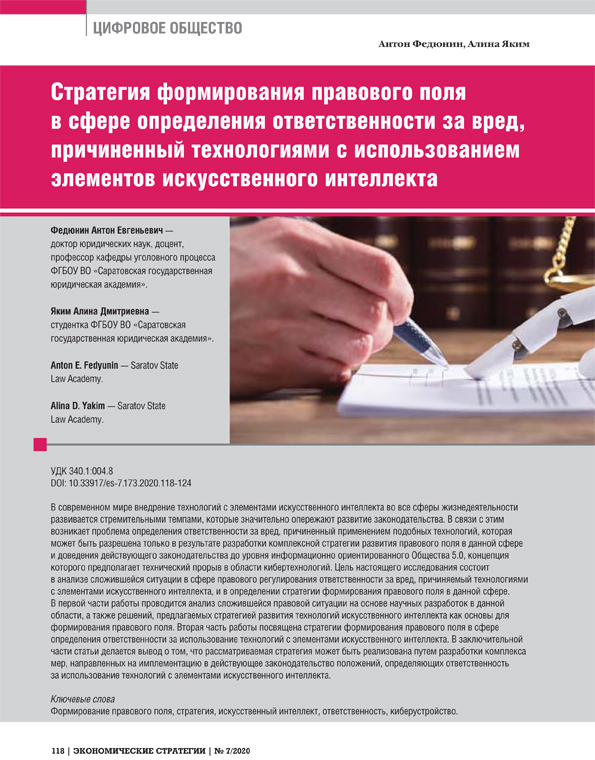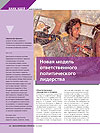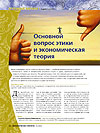Strategy of a Legal Framework Formation in the Field of Determining Liability for the Harm Caused by Technologies with the Use of Artificial Intelligence Elements
DOI: 10.33917/es-7.173.2020.118-124
In the modern world, introduction of technologies with the elements of artificial intelligence into all spheres of life is developing rapidly, significantly ahead of the development of legislation. In this regard, the problem of determining liability for the harm caused by the use of such technologies arises. The problem can be solved by creating a comprehensive strategy for the development of the legal field in this area and bringing the current legislation to the level of information-oriented Society 5.0, the concept of which assumes technical breakthrough in the field of cyber technologies. The aim of this research is to analyze current situation in the field of legal regulation of liability for the harm caused by technologies with the elements of artificial intelligence and to determine the strategy for the formation of legal framework in this field. In the first part of the article the analysis of the current legal situation on the basis of scientific developments in this area is carried out, as well as the solutions proposed by the strategy for the development of artificial intelligence technologies as the basis for the formation of the legal framework are shown. The second part of the article is devoted to the strategy of a legal framework formation in the field of determining responsibility for the use of technologies with the elements of artificial intelligence. In conclusion it is said that the strategy under consideration can be realized by developing a set of measures aimed at implementing the provisions that define responsibility for the use of technologies with elements of artificial intelligence into current legislation.









